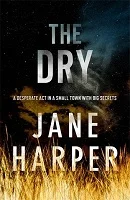4 stars. For all my friends desperate to know the correlation between testicle size and mating habits - THIS BOOK IS FOR YOU!!
After years of bouncing around and trying to find my identity as a sexually active adolescent and young adult, I've come to the conclusion that the human brain is too complex to be able to match perfectly with another's for an entire lifetime. There's just no way the perfect puzzle piece - or just one perfect puzzle piece - exists. And I'm happily married. [“Is it so very obvious that you can’t love more than one person?"]
I do sort of buy into the idea of love, and long-term companionship, but for me all that is largely separate from sex. I guess it's no surprise then to admit that I found myself nodding along with a lot of what's said here.
That being said, I'm not totally convinced that everything in this book is true, accurate or factual. I'm not totally convinced it's even objective. My thoughts on monogamy could be attributed to, quite frankly, "commitment issues," or even more likely, confirmation bias. But I think it's good to ask questions about this stuff. Because the world is very big and I refuse to believe my way is the right way - or the only way.
"Could it be that the atomic isolation of the husband-wife nucleus with an orbiting child or two is in fact a culturally imposed aberration for our species—as ill-suited to our evolved tendencies as corsets, chastity belts, and suits of armor? Dare we ask whether mothers, fathers, and children are all being shoe-horned into a family structure that suits none of us? Might the contemporary pandemics of fracturing families, parental exhaustion, and confused, resentful children be predictable consequences of what is, in truth, a distorted and distorting family structure inappropriate for our species?"
I am absolutely fascinated by the subject matter and will be exploring further. The authors make many, many compelling and well-written points tracing our problematic view of human sexuality throughout history. ALL of history. Cavemen included. We get to explore primate behavior, learn about isolated tribes, tackle the concepts of patriarchy and jealousy head on...
"Societies in which women have lots of autonomy and authority tend to be decidedly male-friendly, relaxed, tolerant, and plenty sexy. Got that, fellas? If you’re unhappy at the amount of sexual opportunity in your life, don’t blame the women. Instead, make sure they have equal access to power, wealth, and status. Then watch what happens."
...highlight the inadequacies and prejudices of anthropologists, etc. Actually, one of this book's strongest features, I think, is its ability to explain these inadequacies with valid conclusions about each philosopher, scientist, anthropologist's point of view. Instead of criticizing ignorance, these authors explain it. That was refreshing.
It's also accessible. Definitely academic at times, but concise and to the point and strongly written for those of us not ridiculously educated.
I docked a star because I want more, which is not necessarily a criticism. I found the book to be one-sided, with a primary focus on male traits and behaviors, and I also found it to be somewhat outdated. I would love to see an update that includes an exploration of dating apps, sex work, etc. I would love to see something more inclusive that looks at queer relationships - though not ignored in this study, I think there's a larger place for them here. And I would like to see a look at the darker side of sex - rape, sex crimes, violent fetishes, etc. For both men and women.
Anyway, I suppose I could talk about this for hours. I loved it, although there's a teeny tiny part of me that thinks maybe this was written by a dude looking to provide the world's greatest excuse for cheating. Maybe because my husband's response to the passage about testicles was a delighted "MY BALLS ARE SMART!!" *eye roll*
It's fascinating, though. We've gone wrong in a lot of ways.
Sex At Dawn on: Amazon | Goodreads










